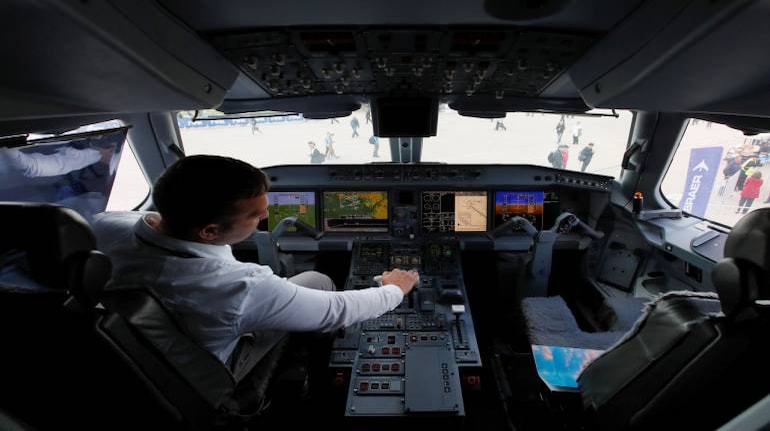
These are not easy times being a pilot. It is not about the challenges of flying per se. That is a pilot's passion. But, it becomes difficult when we have to work despite the high risk of contracting COVID-19 infection. Some of my colleagues in Air India have already got it. One of them recently tested positive after landing in Sydney.
The insecurity of jobs is also very high. I'm a pilot on contract in Air India. My salary is not on par with my colleagues who are 'permanent.' I can't be a part of the union either, so I have little voice within the organisation. Basically, I need to fend for myself.
Now, imagine this. I earn Rs 1,500 for every hour I fly. For the same job, my colleagues who are 'permanent', earn Rs 4,300 per hour. Apart from the flying allowance, I get in-hand Rs 75,000 a month after deduction of training cost. My permanent colleague gets Rs 3.01 lakh. Is that fair?
And, I had to spend much more on getting this job. Becoming a pilot itself is expensive. Like I said, I get Rs 1,500 per hour of flying. On the other hand, it costs up to Rs 10,000 an hour when you are learning to fly.
I have spent about Rs 80 lakh in my studies. This includes the fee at the flying school. And, I had to spend from my pocket for type rating. For many of my colleagues, Air India paid for the training. But, nowadays, we have to pay from our pockets. In fact, I had to spend again for renewing my license as the hiring at Air India was getting delayed. Otherwise, the license would have expired.
On top of this, we also have to give a bank guarantee of Rs 15 lakh with a five-year lock-in period. This is not all. There is also a Rs 50 lakh, 10 year-bond that needs to be given.
The Rs 75,000 I mentioned is only if I fly a minimum of 40 hours a month. As many as 300 pilots in Air India were not able to do so in March, as many were quarantined for 14 days after a flight. And since then, there has been no flying. For April and May, the flying allowance will be zero. This makes meeting monthly expenses, extremely difficult.
For the last type training, my father ran out of money and I had to take a loan. Now, I pay Rs 30,000 every month as EMI on that loan. Many times, the payment gets delayed, and I need to pay a fine. Now, I use one credit card to pay for this EMI, and another credit card for the house rent.
If all this was not enough, am not even sure if I will get 'permanent,' as promised by the airline. Some of my friends didn't, and they resigned and joined private airlines. Am afraid, now even that option is not there. There are too many pilots in the market now, and little demand.
I don't regret becoming a pilot. But, it sure is difficult.
Starting off
Two of my relatives were pilots and, growing up, I also wanted to be like them. Unfortunately, though, my timing was off.
When I completed the course at the flying school, the industry was kind of going through a slowdown after the 2008 economic crisis. There was not much demand. And then, in 2012, Kingfisher Airlines ceased operating and nearly 1,200 pilots were suddenly in the market looking for jobs. To meet ends, I took a job at a retail store in Delhi airport.
Finally, when Air India started taking applications for pilots on contract, I applied. There was no other alternative.
The situation is similar now, like it was when Kingfisher collapsed. First, many pilots again came into the market after Jet Airways had stopped operating in April 2019. And, now with the disruption caused by COVID-19, one really does not know when airlines will start using their fleet. Till then, there will be an excess of pilots in the market.
All this has also delayed the Air India divestment. But, it may be a good time for a big company, like the Tata Group, to really bargain hard and get Air India at a low valuation. What do you think?
As told to Prince Mathews Thomas
Discover the latest business news, Sensex, and Nifty updates. Obtain Personal Finance insights, tax queries, and expert opinions on Moneycontrol or download the Moneycontrol App to stay updated!